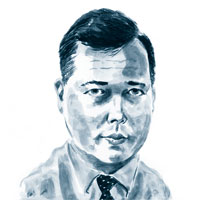Yay!
We all knew the NHS was the best health service in the world (ahem…), but it’s nice to have it confirmed. A report by The Commonwealth Fund (a US organisation, nothing to do with the proper Commonwealth, it seems), comparing 11 developed nations, has put the UK health delivery system at number one overall, and top in nine out of 12 key health indicators.
Apparently, we lead the world in quality care, safe care, effective care, co-ordinated care, patient-centred care, access, timeliness of care, efficiency and low-cost access to care. The US comes last overall and in a number of indicators, despite spending more than twice the amount of money per capita on healthcare.
Of course, I have no idea what any of those indicators actually mean in real terms, and I notice we are only 10th out of the 11 nations in delivering ‘healthy lives’ – which, I suspect, is the whole bloody point of any healthcare delivery system – but let’s not quibble.
I’m as happy to take a pat on the back as any vet who treats diseases of the back legs of cows, but my naturally suspicious nature makes me want to analyse these findings.
Let’s look at just one where we supposedly lead the way: access. The media are constantly bleating about how hard it is to see a GP in a timely manner, but this comes down to the fact that consultations are free. People don’t always stop to think before using an appointment slot, meaning someone else has to wait.
The Royal College Of Nursing has debated the idea of charging a tenner for an appointment at the doctors – although what it has to do with them is a mystery to me – and maybe it is difficult for some patients, but I just can’t square this circle when I look at some of the reasons people turn up in my consulting room.
It costs the nation about £30 every time someone rocks up to see their GP – great value, I know, compared with almost any other professional/punter interaction. But these visits are not all used effectively. Here are just three, culled from my last two working days:
1 A gentleman used an appointment to thank me for treating his gout. He was fine and didn’t want any more treatment; he just wanted to say ‘thanks’.
2 A lady came to tell me how she’d got on after her operation. Like I wouldn’t get a letter about it, although admittedly not for a month or two.
3 Another lady brought her podgy teenager in, told me he didn’t like having his toenails cut, and asked if it would be possible for them to be done under a general anaesthetic (that one was a very short consultation).
They’ll all get a brief, but polite, letter from me suggesting these issues could have been dealt with differently, but I’ve been doing that for years and the number of absurd wasted consultation slots doesn’t seem to fall much.
I suspect that charging a fiver or a tenner might prevent that type of consultation, but what other, more significant, consultations might be prevented? I don’t know the answer, ladies and gentlemen. But our system, despite its lofty ranking, is very far from perfect.
Dr Phil Peverley is a GP in Sunderland.
Pulse October survey
Take our July 2025 survey to potentially win £1.000 worth of tokens













